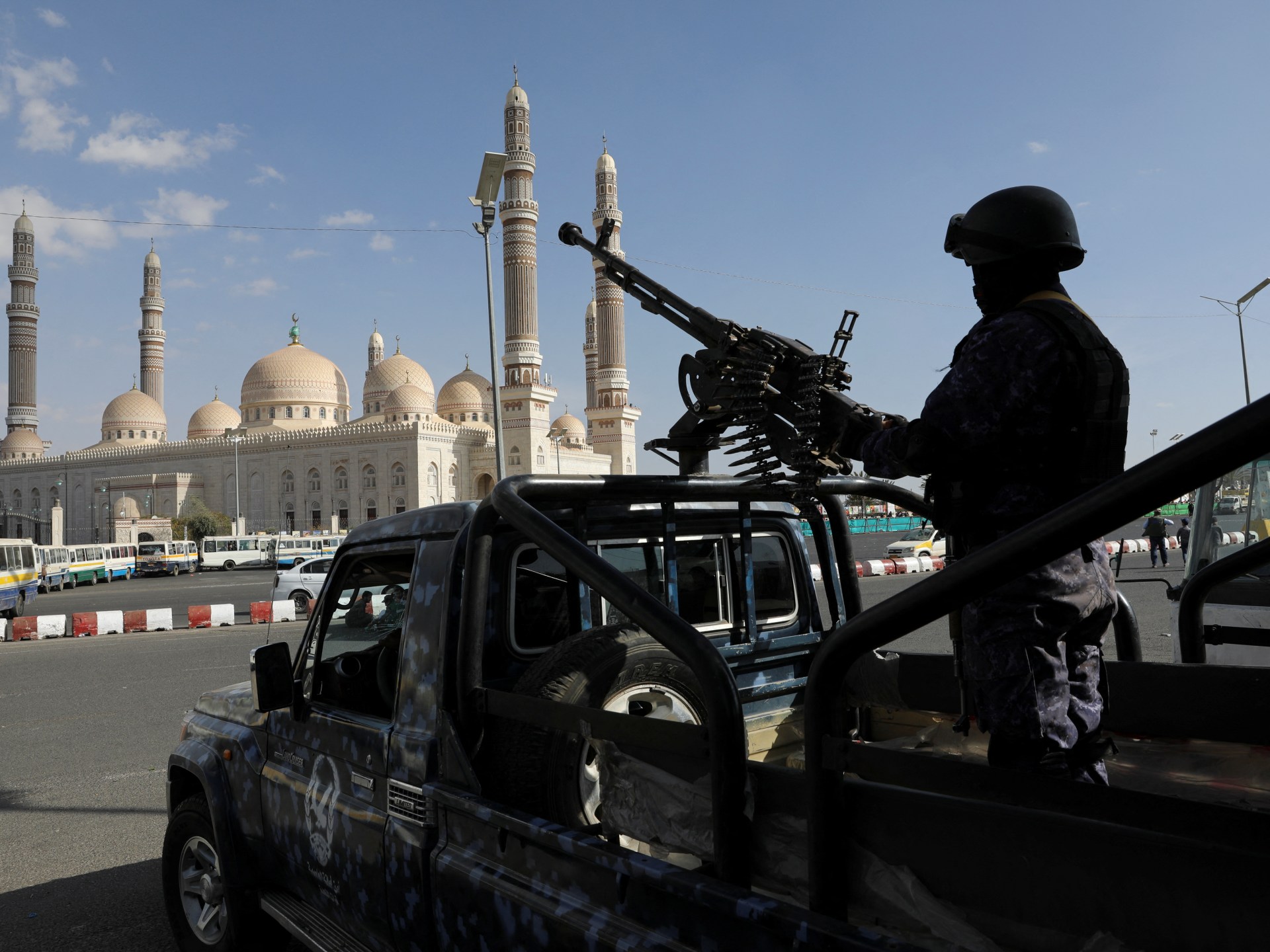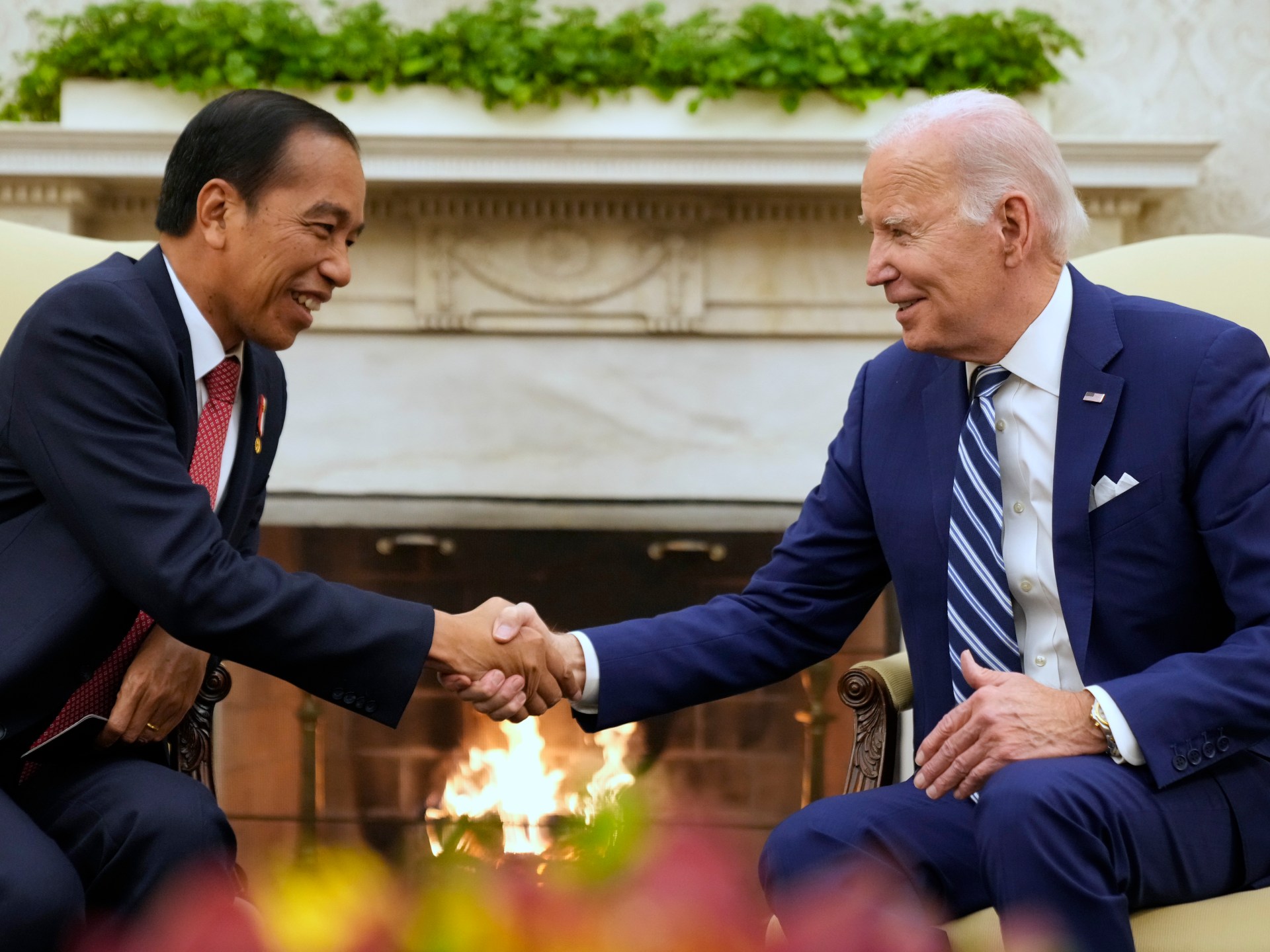
As an ally of Ukraine, the United Kingdom has been a strong opponent of Russian aggression and was the first to supply Ukraine with tanks and long-range missiles.
As a member of the multinational naval force committed to neutralizing the threat Houthis based in Yemen With international shipping, it has raised its own military profile on the world stage.
“We have acted at the forefront of global responses to maintain regional stability,” British Defense Secretary Grant Shapps said in a speech at Lancaster House on Monday.
In October, after the Palestinian group Hamas attacked Israel, the United Kingdom was among the first countries to deploy a Royal Navy task force, marines and surveillance aircraft to Israel.
Last December, after Yemen-based Houthis attacked international shipping in support of Hamas, Britain joined the US to lead the multinational Operation Prosperity Guardian in the Red Sea.
On Friday, this force attacked Houthi military sites after the Houthis attacked HMS Diamond and US Navy ships with 21 drones and missiles.
The United Kingdom used four RAF Typhoon FGR4s to drop Paveway IV guided bombs on two facilities: a site at Bani, used for launching reconnaissance and attack drones, and the airfield at Abbs, used for launching cruise missiles and drones were used. “Early indications suggest that the Houthis’ ability to threaten commercial shipping has taken a hit,” the Defense Ministry said in a statement.
The UK has strengthened its military profile globally and its defense budget at home. Shapps said defense spending, already at 50 billion pounds ($63 billion) this year, would rise to 2.5 percent of gross domestic product (GDP) as soon as possible and he urged other NATO allies to do so to follow this example.
The Red Sea action was justified by protecting world trade.
About 15 percent of global maritime traffic passes through the Bab al-Mandeb Strait, which separates the Indian Ocean from the Red Sea. From there it reaches Europe through the Suez Canal.
The worst affected are container ships that bring manufactured products from China to the European market.
As MollerMaersk, the world’s largest container ship operator, announced Jan. 5 that it would reroute its ships around Africa, prompting other shippers to do the same. The rerouting will add about 10 days to delivery time, increase costs and could drive up prices. Maersk made its decision after the Houthis attacked the Maersk Hangzhou on January 2nd.
Oil tankers were the other major category of ships affected as they use Suez to transport oil from the Middle East to European refineries. A third of the world’s oil is transported by Greek ships.
“Greek tanker companies have been monitoring the situation in the Red Sea for some time – long before the recent events,” an adviser to a Greek tanker operator told Al Jazeera, preferring to remain anonymous. “Incidents widely reported in Yemen in the last quarter of 2022 have alerted everyone to the need to adopt a cautious stance.”
Not everyone in Europe has seen a similar need for violence.
“A broader question arises as to the extent to which this was legal self-defense under Article 51 of the UN Charter,” Angelos Syrigos, a professor of international relations at Panteion University in Athens, told Al Jazeera.
“Nothing… shall prejudice the inherent right of individual or collective self-defense when an armed attack occurs against a member of the United Nations,” the article states.
“Italy hides behind the need for parliamentary approval [of military force]said Syrigos. “France and Spain are saying: ‘We don’t want to solve the problem by force because that risks escalation,'” he said.
“It’s a huge problem, it’s a consequence of others.” [war] Outbreaks. “I don’t want to open a third war front at this point,” Italian Defense Minister Guido Crosetto told Reuters, referring to the current conflicts in Ukraine and the Gaza Strip.
Crosetto has also called on Ukraine to begin negotiations with Russia.
The risk of escalation is certainly present.
Both Hamas and the Houthis are armed by Iran. A third Iranian proxy, Lebanon-based Hezbollah, has also threatened to attack Israel. And there is a risk of direct Iranian involvement.
On January 11, Iran seized a tanker filled with oil in retaliation for U.S. authorities’ seizure of a sanctioned Iranian oil shipment last year.
An escalation could pose a significant military challenge. The Israeli army is still fighting Hamas after more than three months of bombings and commando operations. Hezbollah is said to have 150,000 rockets. And the Houthis may still have powerful weapons. Three days after the US and UK punitive attacks, they attacked a US ship.
The London-based International Institute of Strategic Studies estimated that Iran was attacking the Houthis with Sayyad and Quds missiles with a range of 800 km (500 miles), as well as missiles with a range of 500 km (300 miles) and 300 kg ( 660 pound warheads.
“Although the Houthis have linked their anti-shipping campaign to the ongoing fighting between Israel and Hamas, the weapons were provided by Iran long before the Israel-Hamas conflict erupted in October 2023,” wrote IISS’s Fabian Hinz in an IISS blog. “This indicates a strong, long-term Iranian focus on strengthening Houthi anti-ship capabilities and a possible attempt to extend the Iranian model of maritime coercion from the Persian Gulf and the Strait of Hormuz into the geopolitically important Red Sea and the Bab el- Mandeb Strait to export.” .”
The UK has nevertheless determined that advance defense is the best deterrent against possible future hostilities by other actors.
“The era of the peace dividend is over,” said Shapps, referring to the years after the Cold War. “In five years we could be dealing with multiple theaters involving Russia, China, Iran and North Korea.”
“Ask yourself – when you look at conflicts around the world today – are the numbers more likely to increase or decrease? I suspect we all know the answer – it will probably grow.”
The UK is about to deploy 36,000 troops overseas – the highest number of land forces in 40 years.
There may also be other reasons why the British government is placing itself at the center of the conflict.
“Britain takes the view that it is still a major power in the Middle East… it is basically saying, ‘I need to maintain a presence there and keep an eye on events because I know the region well,'” Syrigos said.
And the UK’s ruling Conservatives face a general election this year. Polls conducted late last year by Ipsos and YouGov found that only a quarter of Britons had a positive opinion of Prime Minister Rishi Sunak, while more than half viewed him negatively.
It remains to be seen whether the UK’s actions in the Red Sea will be as well received as its forceful actions in Ukraine.






Recent Comments